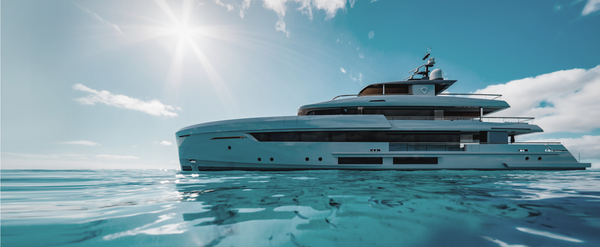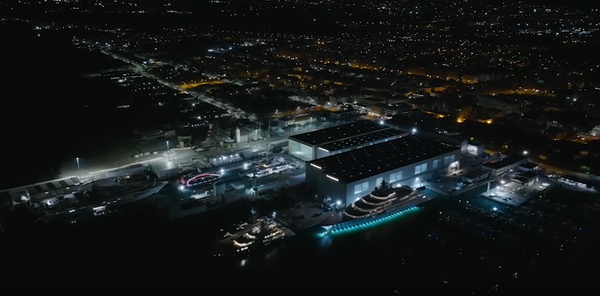Seized Superyacht Amadea Finally Cleared for Auction
After three years of legal intrigue and nothing to do but maintenance, one of the world's most most luxurious superyachts is nearly back on the market.
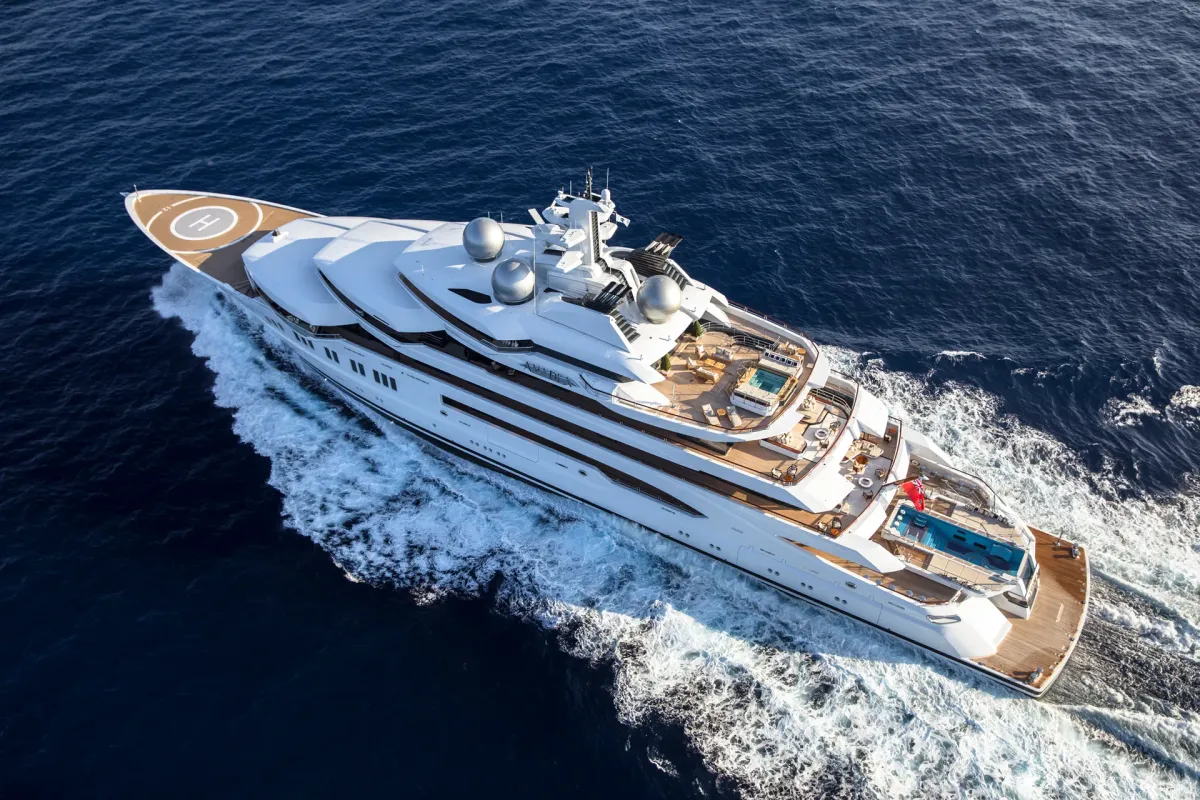
It's a design meant for modern luxury like few others: built by prestigious world-renowned shipyard Lürssen, a go-to for prospective yacht owners seeking the crème de la crème; a staggering 348 feet (106 meters) long, with an interior more akin to a palace than a yacht, Amadea seems a little like a trophy — a testament to the immense wealth of its owner. Soon, though, it'll be someone else's trophy, and the oligarch alleged to be its former owner will have to eat the estimated $300 million loss.
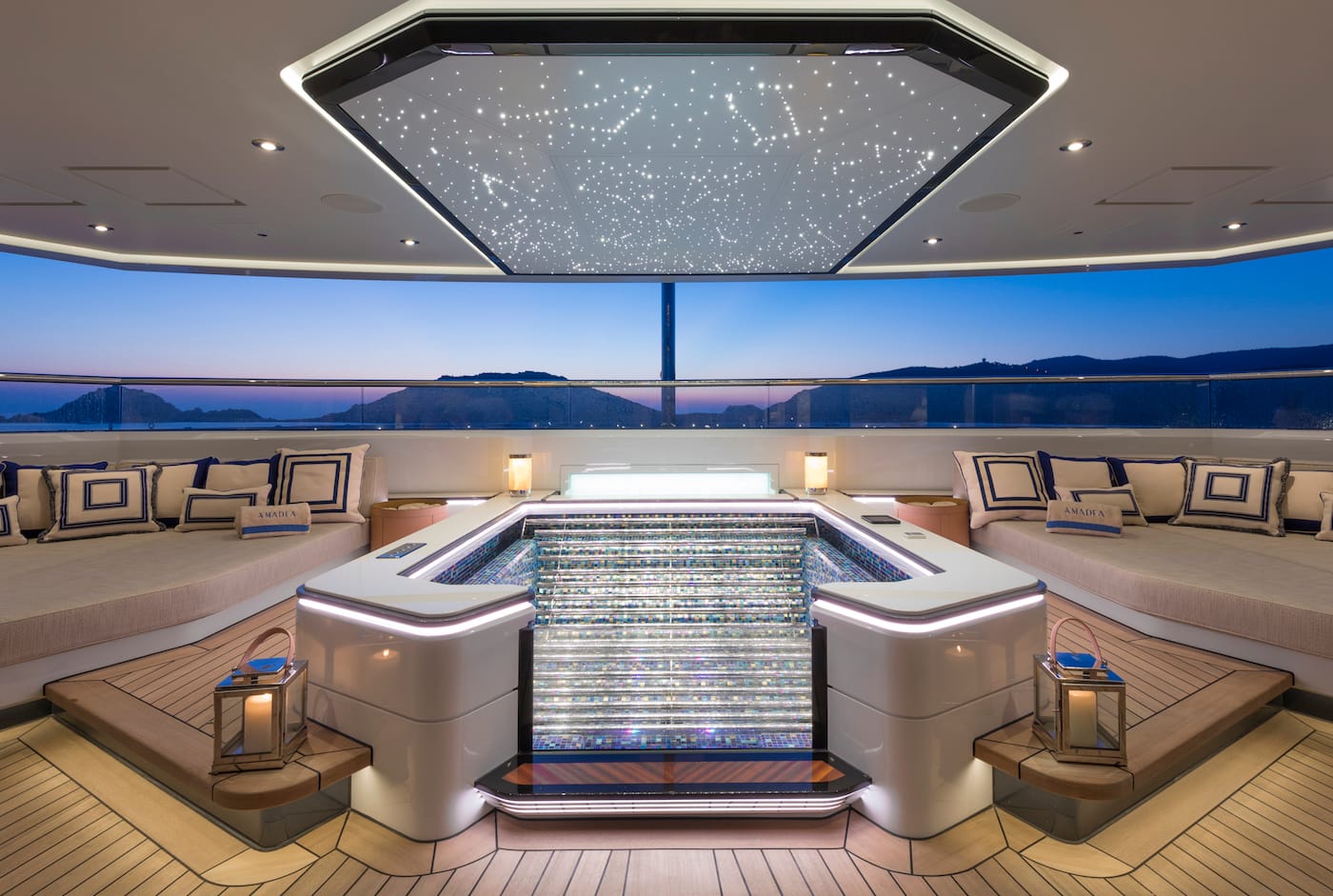
Suleyman Kerimov was an economist in Russia in the early nineties, working for a bank that financed critical utilities during the instability of the Soviet Union's end — but that funding wasn't provided for the good of the state, and Kerimov had heavy pockets when the returns rolled in. That capital became the seed of a wide-branching empire of investments: he acquired controlling stakes, or in some cases whole ownership, of high-profile, high-earning corporations in Russia, and every acquisition increased his leverage for borrowing. He expanded his portfolio across banking, petroleum, mining, agriculture, air travel (Vnukovo, an airline which went curiously insolvent under his stewardship despite his personal soaring financial success), and more; and through these, by the late aughts, he was one of the world's richest men. Former associates and rivals have claimed that his ties to other oligarchs allowed him to make wildly imbalanced deals and offers, take control of shares quickly, and turn fast profits without facilitating any improvements. In one incident, he allegedly used a bank's shares as collateral to take out a loan from that same bank, and used that loan to purchase more of its shares. In another, he bought the entirety of a large Russian gold producer, offered it on the London Stock Exchange not much later, and immediately sold all of his own shares.
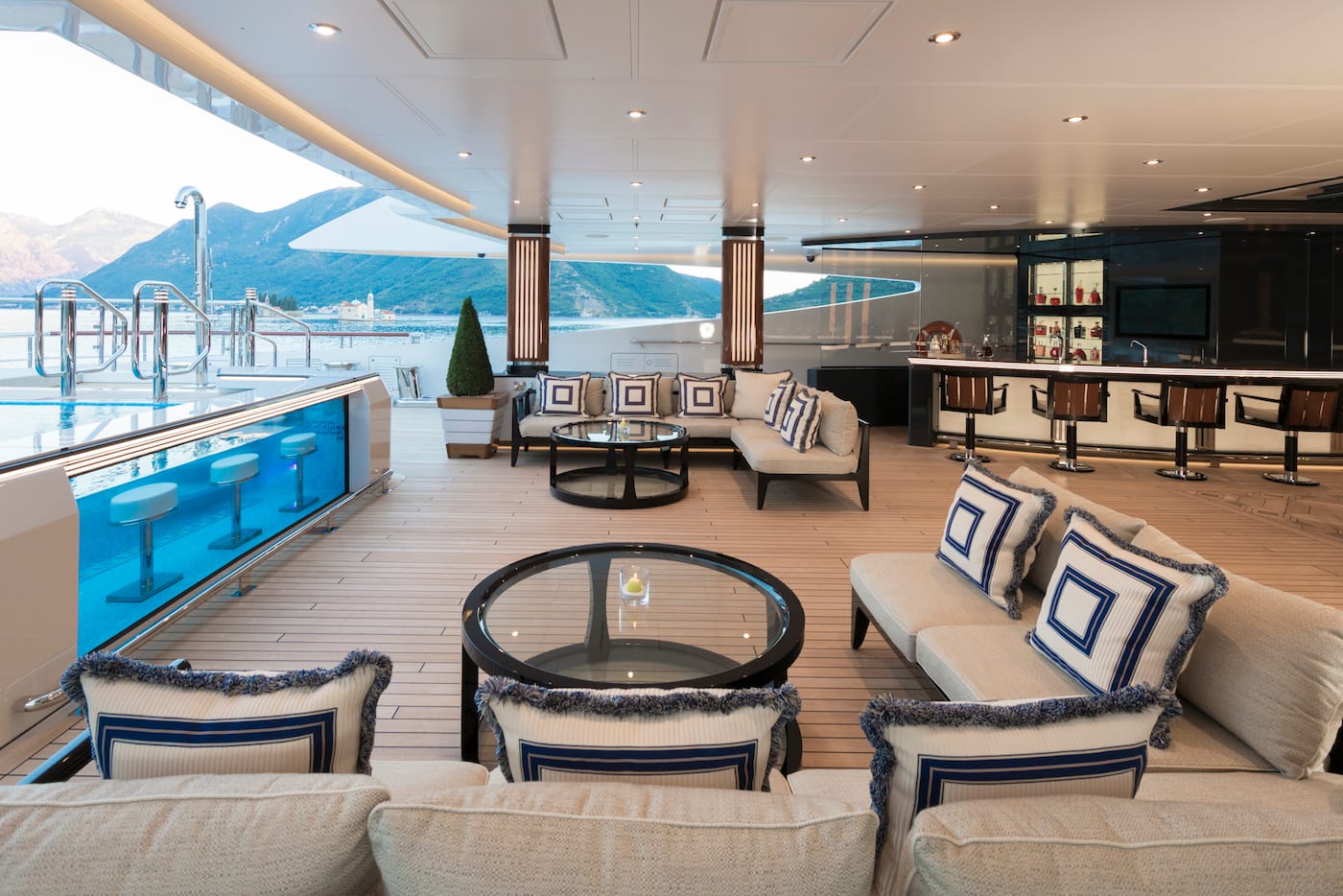
In the years that followed, he repeated that strategy again, picking up allegations of fraud, extortion, and bad-faith negotiations along the way. In Russia (and Cyprus, and Belarus) the charges never seemed to stick — but his luck seemingly ran out in 2017, when he attempted to extend his investment empire into the French Riviera. The charges didn't quite stick then, either, but the accusation of money-laundering by the French government was enough for the United States to include Kerimov on a list of oligarchs to sanction in 2018.
That's where Amadea comes in.
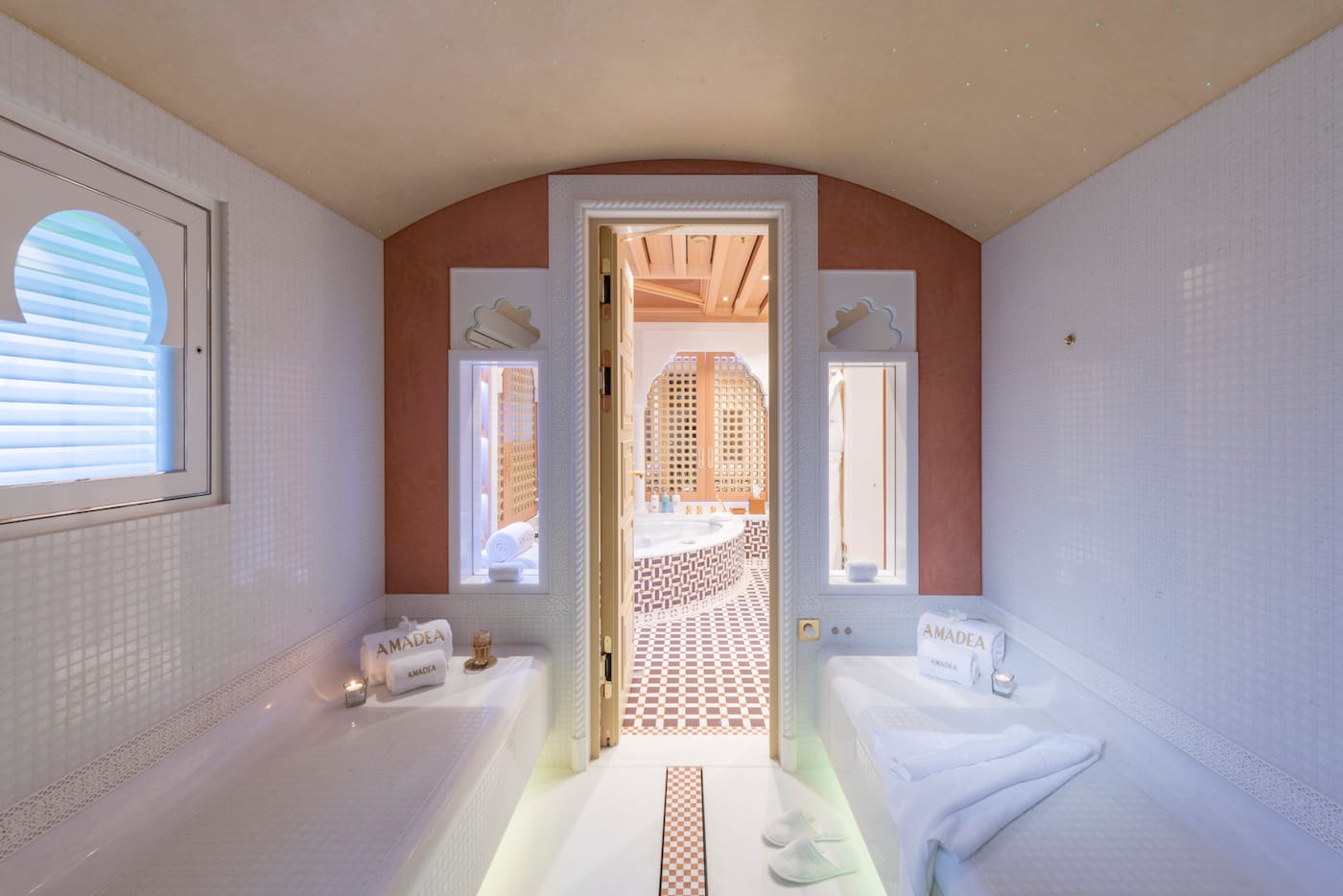
Delivered in 2017, just a year before Kerimov was first placed under sanction, Amadea was a replacement for his first Lürssen yacht, formerly known as Air, which measured 295 feet (90 meters). Amadea was bigger, more spectacular; a floating castle befitting the off-and-on richest man in Russia. Perhaps more than that, it was a substantial investment — so it must have alarmed Kerimov when, in early March of 2022, then-U.S. President Joe Biden announced the creation of Task Force KleptoCapture, formed with the intent of seizing non-liquid assets of sanctioned Russian oligarchs.
At the time, Amadea was docked in the Caribbean. So close to the United States, she was a sitting duck — but only if the task force turned their eye on her, and only if they suspected Russian ownership.
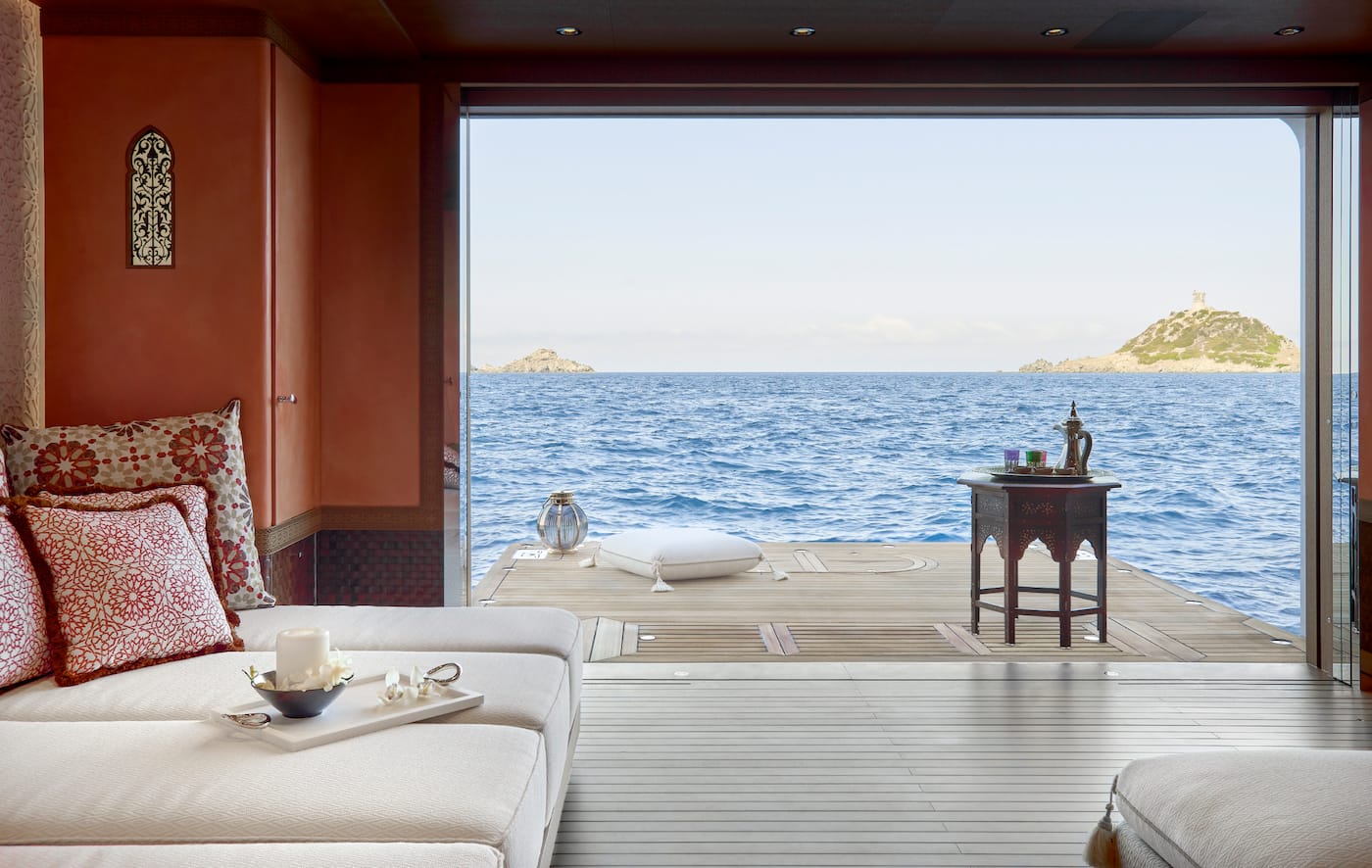
The ship quietly left the Caribbean, headed through the Panama Canal, and began a multi-week journey to Fiji, where the crew would only need to make a few more preparations to head to Russia's eastern coast. On the way, they took a poorly-calculated risk: they turned off the ship's transponder, trying to disappear. The U.S. task force noticed.
On a Tuesday in April, carrying only the crew, Amadea docked in the port of Lautoka — the second-largest city in Fiji, but notably not the capital — and found a berth without obtaining permission or customs clearance, an infringement of Fijian law worth up to a $20,000 fine. Two days later, Fijian police detained both the vessel and the crew.
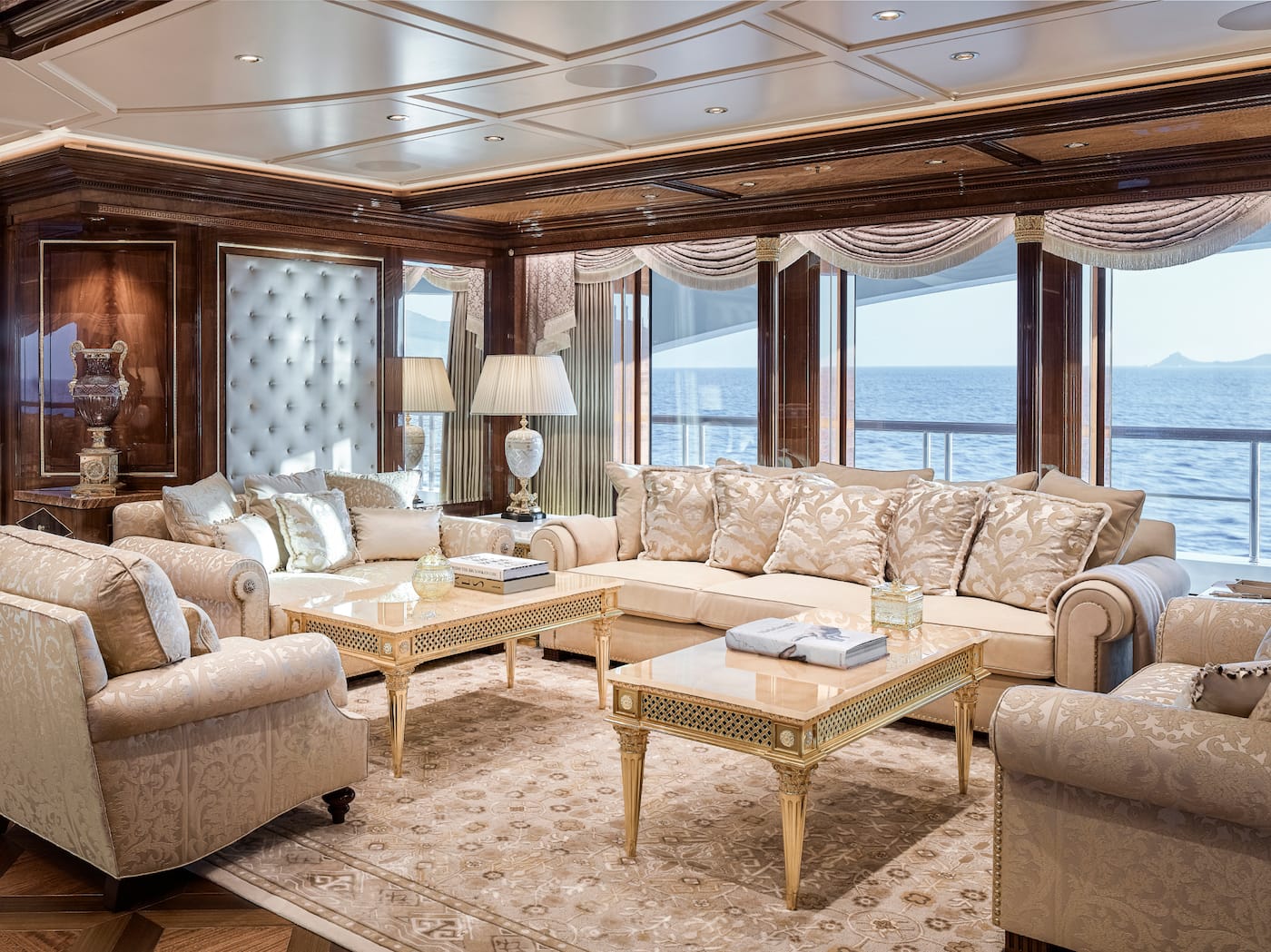
A hasty effort to get information produced a murky picture and fiery legal responses. The yacht flew a Cayman Islands flag and there was no one but the crew aboard; there was no metaphorical smoking gun — but the U.S. claimed Amadea was Kerimov's, and requested its seizure. Kerimov, a member of the Russian Senate, denied it. U.S. Justice Department officials described finding emails referencing Kerimov and his children, and a text message that winkingly hinted at the ship's ultimate destination, Russia, while its schedule claimed it was headed for the Philippines. The lawyer for the shell corporation that formally owned the yacht responded that it was all conjecture. At the time, Business Insider reported that the shell corporation had also retained a local agent who claimed that the U.S. was wrong about the yacht's owner — while also maintaining that he didn't know who the owner was. The shell corporation was in the name of another Russian oligarch: Eduard Khudainatov, a former energy CEO who was conveniently not sanctioned by the United States. But Khudainatov, the U.S. argued, was also the supposed owner of the much larger megayacht Scheherazade — linked to Russian president Vladimir Putin — which was valued at $700 million; nothing about Khudainatov suggested that he had the funds to own more than a billion dollars' worth of yachts.
After a series of appeals and escalations, the Fijian Supreme Court handed the U.S. task force the keys in June of 2022. With a new U.S.-chosen crew, Amadea left Fiji for San Diego, California, where it's remained ever since.
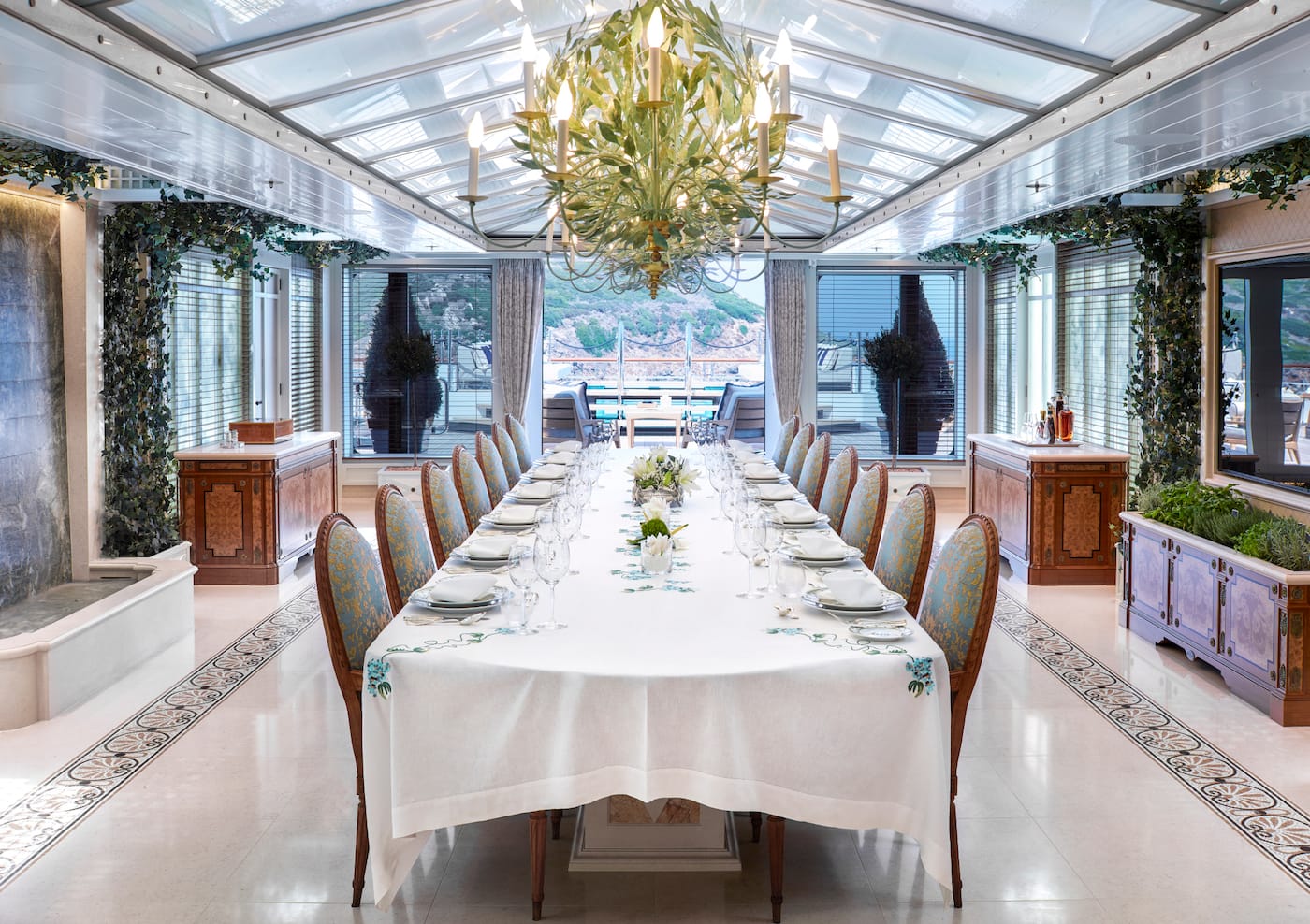
With $300 million on the line and crew and maintenance payments ongoing, the U.S. was keen to sell the ship; but Khudainatov found lawyers in New York to contest the claim again. The legal back-and-forth continued until April of this year, when a judge ruled that there was ample evidence Kerimov was the yacht's true owner — and even then Khudainatov appealed. Only now, in June, has that appeal been dealt a fatal blow: the court ruled that, given the volume of evidence, further delaying the sale to entertain another appeal would not be in the public interest.
There's no date set for the auction thus far, but past similar auctions have utilized sealed bids, which protect the privacy of the bidders and, ideally, eliminate time wasted on counterbids and unrealistically low offers.



